 The Search for St. Brendan - English
The Search for St. Brendan - EnglishWhen you have finished this lesson you can:
Describe the weather
When you have finished this lesson you can:
Describe the weather
Listen to Séamas and Megan and Pavan talk
about the weather and how it is in Ireland and in the US. As if you can
identify the different terms of weather they use.
Listen to Séamas and Megan and Pavan talk
about the weather and how it is in Ireland and in the US. As if you can
identify the different terms of weather they use.
 |
It's too cold to cycle his bike | |
 |
There is often snow | |
 |
He takes the bus |
The Irish weather can be very unpredictable.
Ireland has 4 seasons:
Summer: June, July and August.
Autumn: September, October and November.
Winter: December, January and February.
Spring: March, April and May.
The Irish weather can be very unpredictable.
Ireland has 4 seasons:
Summer: June, July and August.
Autumn: September, October and November.
Winter: December, January and February.
Spring: March, April and May.

 Answered
Answered


 Answered
Answered


 Answered
Answered


 Answered
Answered


 Answered
Answered


 Answered
Answered


 Answered
Answered


 Answered
Answered

 | Autumn | |
Winter | ||
Spring | ||
Summer |



 Answered
Answered


 Answered
Answered


 Answered
Answered


 Answered
Answered

If you want to ask someone about the weather,
you can say:
If you want to ask someone about the weather,
you can say:

 Answered
Answered


 Answered
Answered

When you are about to describe the weather you
can say, "it is ..."
When you are about to describe the weather you
can say, "it is ..."

 Answered
Answered


 Answered
Answered


 Answered
Answered


 Answered
Answered


 Answered
Answered


 Answered
Answered


 Answered
Answered


 Answered
Answered


 Answered
Answered


 Answered
Answered


 Answered
Answered

In Ireland, the temperature is measured in
degrees celsius:
In Ireland, the temperature is measured in
degrees celsius:

 Answered
Answered


 Answered
Answered


 Answered
Answered


 Answered
Answered


 Answered
Answered


 Answered
Answered

You can even describe the weather with
"being:"
You can even describe the weather with
"being:"

 Answered
Answered


 Answered
Answered


 Answered
Answered

When, when and when
There are differences between the words "when" and "when," in English:
When used in direct and indirect questions:
Direct: "When are you coming?"
Indirectly: "I do not know when he comes."
Then used about unique events in the past:
"When I got home you were gone."
"When I was a child, I wanted to play football."
When used for future or repetitive or more general events:
When, when and when
There are differences between the words "when" and "when," in English:
When used in direct and indirect questions:
Direct: "When are you coming?"
Indirectly: "I do not know when he comes."
Then used about unique events in the past:
"When I got home you were gone."
"When I was a child, I wanted to play football."
When used for future or repetitive or more general events:

 Answered
Answered


 Answered
Answered


 Answered
Answered


 Answered
Answered


 Answered
Answered


 Answered
Answered


 Answered
Answered


 Answered
Answered


 Answered
Answered

 |
Wrong | |
 |
Right |
Ask Séamas how the weather is:
Click the button to record your answer, with
microphone..
Ask Séamas how the weather is:
Click the button to record your answer, with
microphone..
 Correct
Correct Wrong
Wrong Answered
AnsweredAsk Séamas how the weather will be tomorrow:
Click the button to record your answer, with
microphone..
Ask Séamas how the weather will be tomorrow:
Click the button to record your answer, with
microphone..
 Correct
Correct Wrong
Wrong Answered
AnsweredAsk Séamus if it will rain tomorrow:
Click the button to record your answer, with
microphone..
Ask Séamus if it will rain tomorrow:
Click the button to record your answer, with
microphone..
 Correct
Correct Wrong
Wrong Answered
AnsweredLook at the picture and answer Séamus‘ questions:
Look at the picture and answer Séamus‘ questions:

 Correct
Correct Wrong
Wrong Answered
Answered
 |
Celsius | |
 |
Fahrenheit |
Ask Séamas when he is going to the beach:
Ask Séamas when he is going to the beach:
 Correct
Correct Wrong
Wrong Answered
Answered
 |
Summer - Spring - Winter - Autumn | |
 |
Winter Spring, Summer Autumn | |
 |
Autumn - Summer - Winter - Spring | |
 |
Spring - Summer - Winter - Autumn |
 |
March | |
 |
June | |
 |
December | |
 |
September |
Tell Séamas that you do not cycle when it's
raining:
Tell Séamas that you do not cycle when it's
raining:
 Correct
Correct Wrong
Wrong Answered
Answered |
Section completed |  |
| Exercise | Result | Your answer | Correct answer |




 Vifin Course Creator
Vifin Course Creator